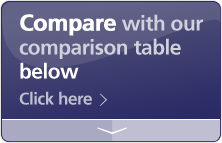Investment News Budget How Tax Can Affect Your Savings And Investments 18471585

Budget: How tax can affect your savings and investments
31 March 2011 / by Paul Dicken
Following the Budget announcement, and with the end of tax year approaching, tax allowances for saving and investing have been in the spotlight.
As well as confirming the introduction of a tax-efficient Junior ISA for child savings, the 2011 Budget changed the way the standard ISA allowance works.
Having pegged annual increases in the ISA allowance to the Retail Prices Index (RPI) measure of inflation, the government said this month that the Consumer Prices Index (CPI) would be used instead.
The CPI inflation measure is calculated differently to RPI and is normally lower, for example, the new ISA allowance for the 2011/12 tax year is £10,680 which increased in-line with the RPI figure for September 2010. However, if the CPI figure of 3.1 per cent had been used instead of RPI, the increase would have been more than £100 less.
Making the most of ALL tax allowances
The two main ways to save or invest and protect your money from tax are through ISAs (individual savings accounts) and pensions.
ISAs
Cash ISAs and the range of stocks and shares ISA options mean you can choose the right type of savings account or investment for you, knowing you will not be liable for income tax or capital gains tax.
Fair Investment Company associate director, Oliver Roylance-Smith explains why making the most of these tax allowances is so important: “With income tax potentially taking as much as 50% from savings and investment returns for some people, it is crucial to make the most of your ISA allowance before considering other investments.
“The fact that there is no extra income tax or capital gains tax liability should make ISAs the first port of call for all savers and investors.”
Visit the ISA section for a full range of options for your ISA allowance.
Pensions
From the 6 April 2011 the maximum amount that can be saved into a pension tax-free is £50,000.
The effect of this is that 20 per cent of what a basic rate taxpayer pays into his or her pension is constituted from tax that would normally be paid on that money.
So in a year, if a total of £10,000 is paid into a pension £2,000 is paid by the government so the net payment from your take-home earnings is £8,000.
This makes pension savings a very attractive option from a tax perspective.
Oliver Roylance-Smith added: “When it comes to pensions, despite recent reforms, the ability to invest up to £50,000 a year before tax still makes pension investments like SIPPs an attractive way to limit the impact of tax on your earnings.”
See the Pension section for more information about the Fair Investment SIPP.
Click here to view our guide to pension, savings and investments tax for 2011/12.
The tax efficiency of ISAs is based on current tax law and there is no guarantee that tax rules will stay the same in the future.
© Fair Investment Company Ltd
